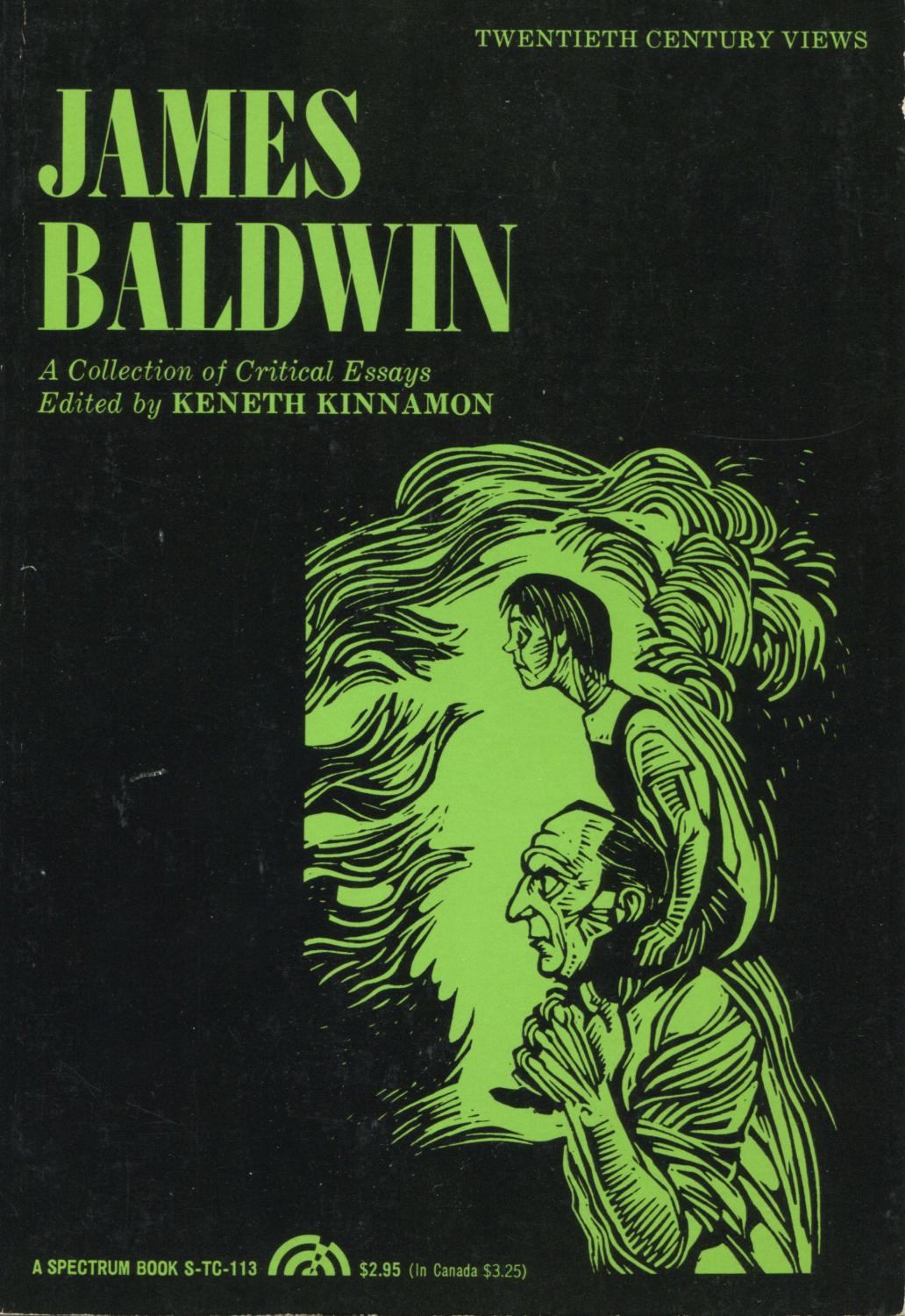A review of James Baldwin: a collection of critical essays edited by Kenneth Kinnamon (Prentice-Hall, 1974)
We try to forget Baldwin or, rather, we try to remember him as the author of the searing Fire Next Time or of that superbly documentary novel, Go Tell it on the Mountain. We even remember him marching with the King that God forgot, we remember him bear witness to the travail of his people, our people, their resistance and rebellion. We see him taking conscience of himself in his history and wanting to change it.
But when the fight for rights was over for the vote and property and a place in the American sun – opening up the road ahead for the long and protracted and deathly struggle against capital and the state, against exploitation on a world scale, against death-dealing imperialism, Baldwin was not there. He was writing in Paris and London and Istanbul, or rapping pointlessly with Margaret Mead and her ilk, or making an arse of himself on BBC television – returning endlessly to the themes of love and redemption and the life interior: ‘if we are going to change history … We have got to change ourselves because we are history’. True he rallied – momentarily – to the cause of Angela Davis, but without the faintest notion of what the larger issues were all about – an innocent abroad, from another country, another world, the world of the writer qua writer.
Baldwin himself had declared very early on in his career that he was a writer first and a black who happened to be American, after. But because what he wrote about -his condition and therefore that of his people – was of historical moment, he was caught up in the vortex of racial struggle. But as that phase yielded to class war Baldwin remained stranded on the shores of another time. His writings became insubstantial, devoid of content, of historical moment. All that was left was his craft.
Kinnamon’s collection of essays is designed to provide a literary assessment of Baldwin. They have been culled mostly from American journals ranging over a period of time – from Langston Hughes in 1956 to De Mott in 1972. They examine Baldwin’s skills as a writer rather more than the substance of his writings, or the substance only in terms of the form. ‘To function as a voice of outrage month after month for a decade or more strains heart and mind, and rhetoric as well; the consequence is a writing style ever on the edge of being winded by too many summonses to intensity’ (De Mott). Or “his colour is his metaphor …’ (Newman).
In fact, though, his colour is his stock-in-trade. Baldwin’s obsession is with himself, and with America and race only when that country’s history is being acted out in him. And when that history is in racial crisis, no one portrays its paroxysms better than Baldwin – and that by writing about himself, his pain, his despair, his quest for love and acceptance. At that point the objective condition and the subjective become one, identical, and Baldwin bears witness to that history as no one can. What Mailer attempts Baldwin is.
Kinnamon’s own assessment of Baldwin as ‘victim, witness and prophet’ is therefore a truer judgement. But only Cleaver in his ‘Notes on a Native Son’ makes a social, even political, assessment of Baldwin – and inevitably he summons up the revolutionary spectre of Richard Wright, whom Baldwin bitched about in Nobody knows my name, to beat Baldwin with. Nearly all the other contributors attempt to locate Baldwin in the bourgeois literary constellation of Henry James, Hart Crane and Hemingway.
The point, however, is not whether Baldwin is a consummate craftsman or not — that he is – or whether he has words or not – that he has – but whether he is a writer who happens to be black or a black man who happens to be a writer. The one seeks to liberate himself through his people, the other to liberate his people through him. The one is a professional, a mercenary on hire to his people, the other is a soldier in the people’s army.

